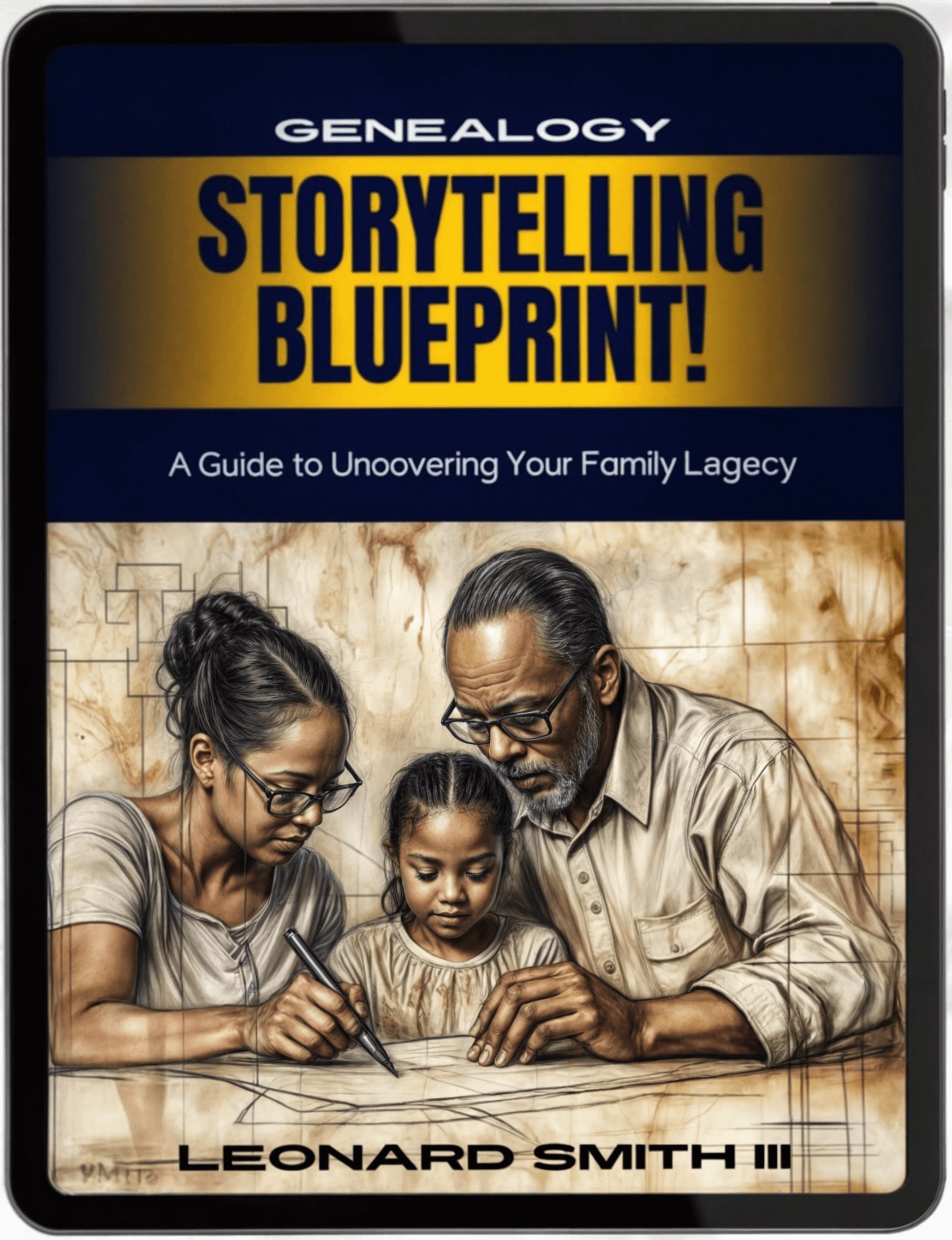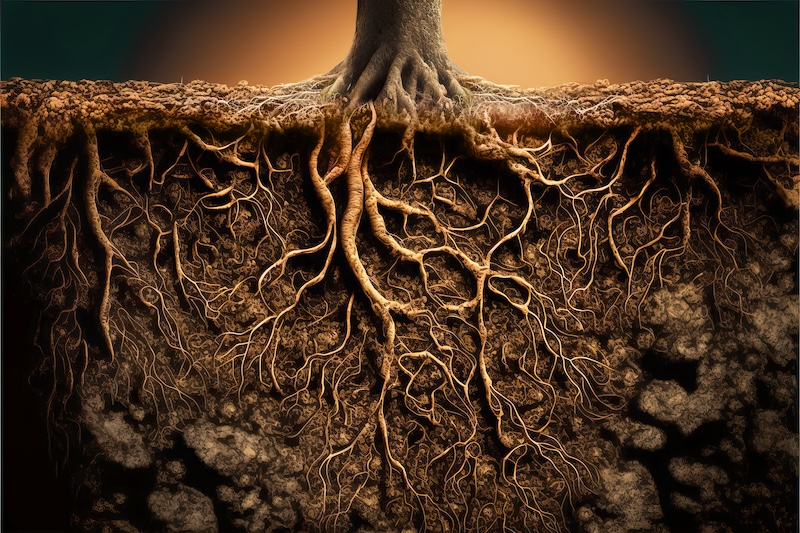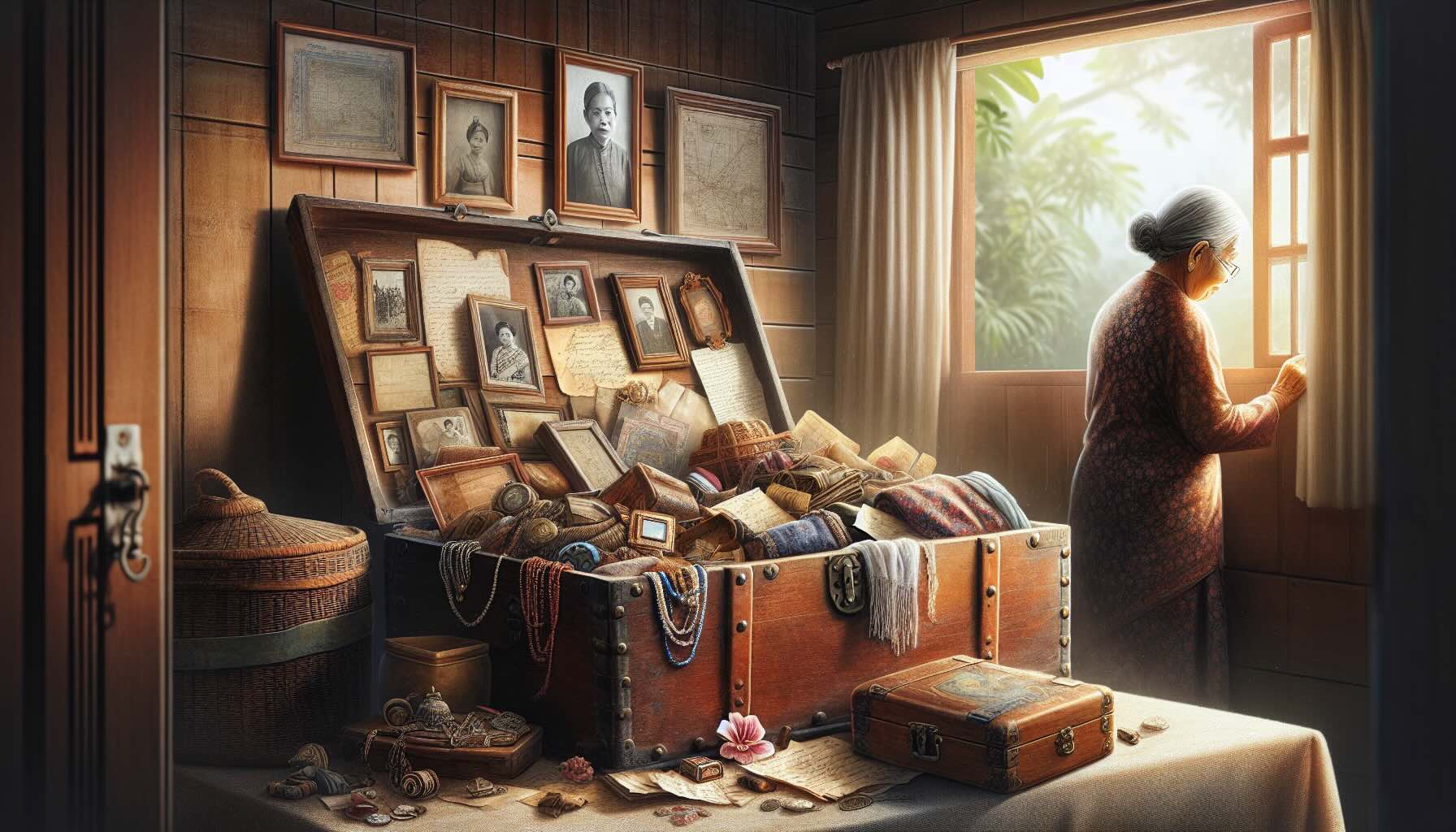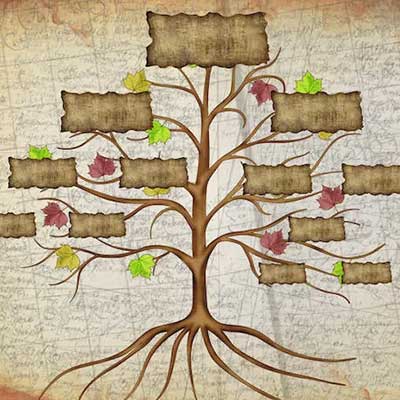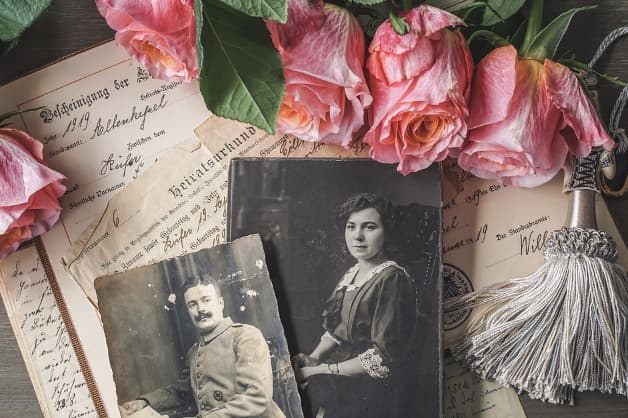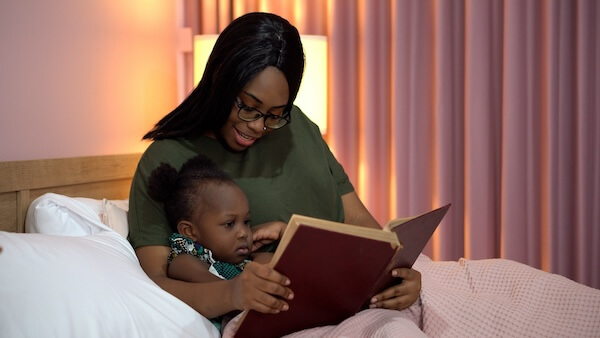- Home
- Importance of Family Storytelling
- The Power of Oral Storytelling
THE POWER OF ORAL STORYTELLING
Discover the power of oral storytelling! Connect with your family's history, preserve cultural heritage, and foster empathy. Explore techniques and ethical considerations for compelling oral storytelling. Find out how storytelling and its role in education are cherished in different cultures. Uncover the hidden gems within your family's narrative.
Imagine traveling back in time and witnessing the captivating stories shaping your family's history. You can unlock a treasure trove of experiences, memories, and narratives passed down from generation to generation. This powerful tradition allows you to connect with your roots and gain a profound understanding of the past. Through storytelling, you can become the guardian of your family's legacy, ensuring that these precious tales are never forgotten. I'd like you to please embark on a journey of discovery and find the hidden gems within your own family's narrative.
What is Oral Storytelling
Definition
Oral storytelling is the art of conveying stories, legends, myths, and narratives through spoken words. It is a tradition handed down from generation to generation, serving as a vehicle for cultural heritage, entertainment, education, and connection.
The Power of Oral Storytelling
Connecting with the Audience

The power of oral storytelling can establish a deep and personal connection with the audience. Unlike other forms of storytelling, such as reading a book or watching a movie, oral storytelling allows for direct interaction and engagement between the storyteller and the listeners. This connection nurtures a sense of shared experience and emotional resonance, making the storytelling experience more impactful and memorable.
Preserving Cultural Heritage
One of the most essential functions of oral storytelling is the preservation of cultural heritage. Through the oral transmission of stories, traditions, and beliefs, communities can safeguard their cultural identity and pass it on to future generations. Oral storytelling is a repository of collective memory, ensuring cultural narratives are not lost or forgotten over time.
Building Empathy and Understanding
Oral storytelling has the incredible power to foster empathy and understanding among individuals. Listening to stories from different perspectives and cultures, listeners gain new insights, broaden their horizons, and develop a greater appreciation for diverse experiences. Oral storytelling promotes cultural exchange, breaks down barriers, and encourages dialogue, leading to a more inclusive and interconnected society.
Importance
Storytelling holds immense significance in various aspects of human life. It is a powerful medium that brings people together, facilitates the preservation of culture, and promotes empathy and understanding among individuals.
Traditional and contemporary forms of oral storytelling hold unique charm and importance. Conventional oral storytelling refers to ancient narratives passed down for centuries and deeply rooted in cultural heritage and folklore. On the other hand, contemporary oral storytelling encompasses newer and evolving narratives that reflect the current times and the experiences of modern societies.
The Role of Oral Storytellers
Functions of Storytellers
Storytellers play a vital role in society by serving as the custodians of stories and cultural traditions. They carry knowledge, wisdom, and values, passing them on to future generations. Oral storytellers entertain, educate, inspire, and provide a sense of belonging to their audience. They hold the responsibility of preserving and sharing stories that have the potential to shape individuals and communities.
Skills and Qualities of Effective Storytellers
Compelling oral storytellers possess various skills and qualities that enhance their storytelling abilities. They have a compelling and expressive voice that captivates the audience and conveys the emotions of the narrative. They skillfully use gestures, body language, and facial expressions to bring the stories to life and engage the listeners. Compelling oral storytellers also possess a deep understanding of their audience, tailoring their storytelling style and content to connect with different age groups and cultural backgrounds.
Types of Oral Stories
Folktales and Legends
Folktales and legends are oral stories that have been passed down through generations, often having roots in ancient cultures and folklore. These stories typically involve fictional characters and narrate moral lessons, cultural beliefs, and historical events. Folktales and legends serve as a means of entertainment, education, and transmitting cultural values.
Myths and Creation Stories
Myths and creation stories are ancient narratives that explain the origins of the world, natural phenomena, and the existence of humanity. These stories are deeply rooted in cultural and religious beliefs, offering insights into the worldview and cosmology of different societies. Myths and creation stories hold profound cultural and spiritual significance, shaping individual and collective identities.
Historical and Personal Narratives
Historical and personal narratives encompass stories of real events and experiences. Historical narratives recount significant events, such as wars, revolutions, or social movements, providing a window into the past. On the other hand, personal narratives share individual experiences, memories, and life stories, allowing for a deeper understanding of personal identity and the human condition.
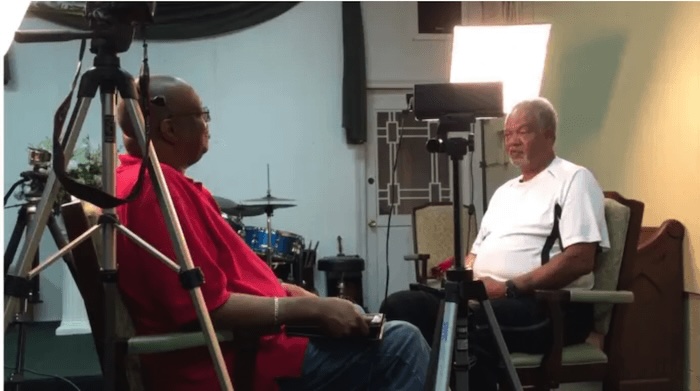 Interview from A Place Called Desire
Interview from A Place Called DesireTechniques for Effective Storytelling
Voice Modulation and Gestures
Voice modulation and gestures are essential techniques that help bring oral stories to life. Skilled oral storytellers vary their voice pitch, tone, and volume to suit the different characters and moods within the narrative. They employ gestures, body movements, and facial expressions to enhance the visual and emotional aspects of the story. Storytellers create a dynamic and engaging storytelling experience through voice modulation and gesture.
Using Props and Visual Aids
Incorporating props and visual aids can significantly enhance the storytelling experience. Storytellers can use objects, pictures, or visuals to illustrate key elements of the story, provide visual cues, and spark the audience's imagination. Props and visual aids are tangible visual representations, strengthening the connection between the story and the listeners.
Engaging the Audience with Eye Contact
Maintaining eye contact with the audience is a powerful technique that helps establish a personal connection and engagement. Compelling oral storytellers make eye contact with different individuals in the audience, creating a sense of inclusion and making each listener feel seen and heard. Eye contact also allows storytellers to gauge the reactions and emotions of the audience, adjusting their delivery accordingly.
The Process of Collecting and Sharing Oral Stories

Research and Preparation
Collecting and sharing oral stories require thorough research and preparation. Storytellers delve into various sources, including books, historical records, interviews, and personal experiences, to gather information and shape their narratives. They conduct in-depth research to ensure their storytelling accuracy, authenticity, and cultural sensitivity.
Interviewing Techniques
Interviewing individuals who possess oral stories is a crucial aspect of collecting and sharing narratives. Storytellers employ effective interviewing techniques to encourage open and honest storytelling, asking thought-provoking questions and actively listening to the responses. They create a comfortable and safe environment that encourages storytellers to share their experiences and memories freely.
Recording and Archiving
To ensure the preservation and wider dissemination of oral stories, storytellers utilize various methods of recording and archiving. They may use audio or video recording devices to capture the stories in their original form. Additionally, storytellers collaborate with libraries, archives, or digital platforms to create archives safeguarding oral narratives for future generations.
Ethical Considerations in Oral Storytelling
Respecting Cultural Protocols
In the realm of oral storytelling, it's crucial to honor the cultural norms and traditions tied to significant narratives. Storytellers ought to immerse themselves in the cultural backdrop from which these tales emerge and comply with any rules set forth by the relevant communities. Upholding these cultural protocols not only maintains the integrity of the culture but also prevents any form of misrepresentation or appropriation.
Obtaining Consent and Permission
Ethical storytelling requires obtaining informed consent and permission from the storytellers and communities involved. Storytellers should establish open and honest communication with the individuals they are interviewing, explaining the purpose and potential uses of the stories. They must respect the rights and privacy of the storytellers and obtain consent for recording, archiving, and sharing the narratives.
Avoiding Exploitation and Misrepresentation
Storytellers are responsible for ensuring that the stories they share are not exploited or misrepresented. They must exercise caution when presenting sensitive information, avoiding harming or damaging the individuals or communities involved. Storytellers should be mindful of the power dynamics and strive to create a respectful and equitable storytelling experience.
Preserving Oral Stories in the Digital Age
Digital Preservation Techniques
In the digital age, preserving oral stories has been made more accessible through technological advancements. Digital preservation techniques involve converting analog recordings into digital formats, ensuring their long-term accessibility and usability. These techniques include digitization, metadata creation, data storage, and regular backups, safeguarding oral stories from degradation and loss.
Creating Online Archives
Online archives provide a platform for the widespread dissemination and access to oral stories. Storytellers collaborate with digital repositories, libraries, or cultural organizations to create online archives, making the narratives available to a global audience. Online archives promote the sharing of cultural heritage, facilitate research and education, and contribute to the collective memory of humanity.
Ethical Issues in Digital Preservation
Digital preservation of oral stories poses several ethical considerations. Storytellers must ensure the security and privacy of the digital archives, implementing appropriate measures to protect the sensitive information contained within. Additionally, ethical issues surrounding copyright, intellectual property rights, and data ownership should be addressed to prevent potential misuse or infringement.
The Power of Oral Storytelling in Different Cultures
Indigenous Oral Storytelling
Indigenous oral storytelling holds a unique place in cultural heritage and identity. It serves as a means of preserving and transmitting traditional knowledge, spiritual beliefs, and cultural practices. Indigenous storytellers are crucial in revitalizing and reclaiming ancestral narratives, strengthening community bonds, and combating cultural erasure.
African Griots
African Griots, also known as jalis, are revered oral storytellers entrusted with maintaining their communities' history and cultural heritage. Griots use their storytelling skills to preserve genealogies, communicate moral lessons, and entertain through music, poetry, and dance. They are highly respected figures, embodying their societies' collective memory and wisdom.
Asian Oral Traditions
Asian cultures have a rich oral storytelling tradition, with diverse narratives that reflect their unique worldviews. From the epics of ancient India, such as the Mahabharata and Ramayana, to the oral theater of traditional Japanese storytelling, Asian oral traditions have played a vital role in shaping the region's cultural fabric. These stories are a testament to the beauty and diversity of Asian storytelling traditions.
The Power of Oral Storytelling in Education
Enhancing Literacy and Language Skills
Oral storytelling has immense educational benefits, particularly in cultivating literacy and language skills among learners. Students develop their vocabulary, comprehension, and communication skills by listening to and retelling stories. Oral storytelling provides a dynamic and interactive learning experience that captivates learners and fosters their love for storytelling and language.
Fostering Creativity and Imagination
Engaging with oral stories sparks imagination and nurtures creativity among individuals of all ages. Storytelling encourages listeners to visualize and imagine the worlds and characters described, fostering creative thinking and problem-solving abilities. By harnessing their imagination, learners become more innovative, flexible, and open to new ideas.
Promoting Cultural Diversity and Inclusion
In the classroom, oral storytelling promotes cultural diversity and inclusion by exposing students to narratives from different backgrounds and perspectives. It encourages empathy, tolerance, and respect for diverse cultures, fostering a sense of global citizenship. By embracing oral storytelling in education, schools create inclusive learning environments that celebrate the richness of human heritage and promote understanding among students.
Oral storytelling is a powerful and timeless art form that can connect, educate, and entertain. From preserving cultural heritage to fostering empathy and understanding, oral storytelling plays a vital role in shaping individual and collective identities. With their skills and qualities, oral storytellers serve as custodians of stories and gatekeepers of knowledge.
Using effective techniques and ethical considerations, the power of oral storytelling can be collected, shared, and preserved in the digital age. Across different cultures and in educational settings, oral storytelling enhances literacy, promotes creativity, and embraces cultural diversity. So, embrace the power of oral storytelling tradition and uncover the rich tapestry of narratives that shape our world.



